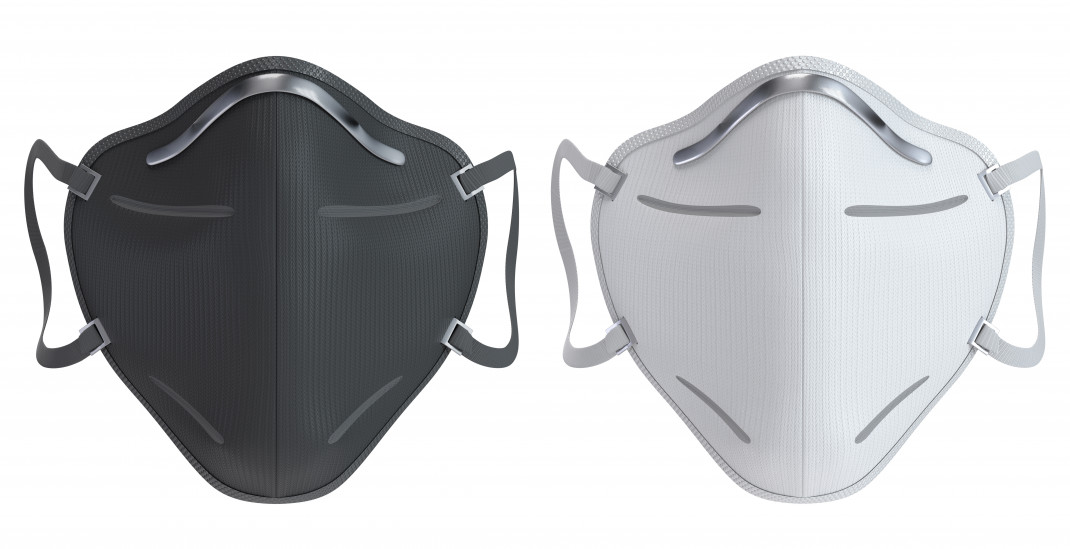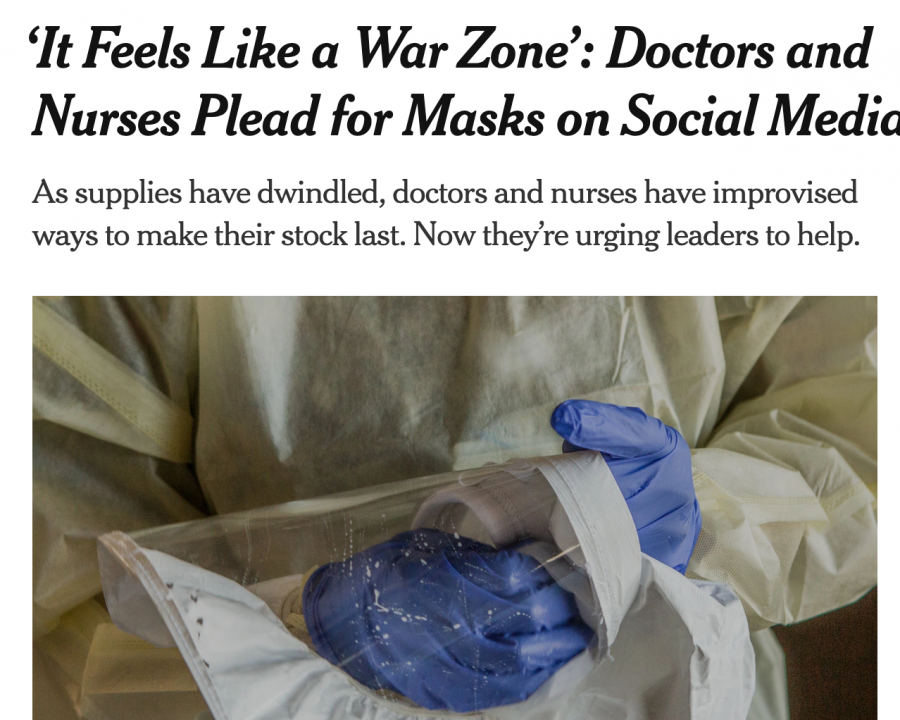The city of masks does not begin as a city of masks. It begins as one man hoarding many masks, thousands of masks he does not need and which he purchases online when word of contagion spreads like, well, a contagion. The man goes online and finds many masks, thousands of masks, for sale at a very high cost, but he is a man of means and he purchases many masks, thousands of masks, at a very high cost. He goes out into the city wearing one mask and then the next a blue mask and then a white mask until others see him and think, I too need a white mask or a blue mask. It is a contagion, this need to wear a mask, not unlike the contagion the mask is meant to repel.
Within weeks the city of masks is a city of men and women and children and dogs and rats wearing masks. They are masks of all kinds—blue masks and white masks yes, but also masks printed with the image of the lower halves of faces to complete and match the face they cover, masks with the names of products for sale, the logos of bands and sporting teams near and dear to the heart of the men and women who wear the masks. They cover only the mouths and noses of those who wear the masks and they transform the city of masks into a city of eyes looking out from above a mask with the lack of conviction endemic to one in a mask. The people in the city of masks look into each others’ eyes and search for contagion, for love and for hope and suspicion, but mostly what they see in the city of masks are faces obscured and completed by masks.
In the sewers and rivulets along the streets in the city of masks the rats ride in masks like passengers in boats crossing the Lethe. In the city of masks squirrels parachute on gusts and gales like paratroopers gliding on the buoyancy of regret. Masks flit and hop in the wind as if grown animate with a change in the weather.
The people in the city of masks look into each others’ eyes and search for contagion, for love and for hope and suspicion.
At night as the people of the city of masks sleep, the streets are littered with used masks. Blue masks and white masks pile in the corners of streets and alleyways and under the surreptitious cover of dark, the men and women who are not of means like the first man who hoarded masks come out and collect discarded masks. They cover their faces like the men and women during the day, seeking too to repel contagion. During the day they bear the cost and at night they reap the benefit. The smell of the people of the city of masks in their noses they feel protected much as the people do in the day in the city of masks. At night the night people in the city of masks clear the streets of masks so that in the morning the people in the city of masks will forget they have discarded their masks, forget there were masks of the day before. The people of the city of masks wake each morning as if there was not a previous day in which they wore their masks. At night the people of the city of masks clean and refurbish the masks, sell them back to the people who sell the masks to the people of the city of masks during the day.
In the mornings the people of the city of masks don their masks and set out to complete their tasks. In the kiosks and pharmacies and bodegas of the city they will buy their coffees regular and their bagels cream-cheesed with the confidence of the people in the city of masks who by day wear masks with the logos of their favorite sports teams and bands, while in the rivers and streams the rats float by on their blue and white boats. The people of the city of masks look into the eyes of the people in masks on the streets, in the underground trains and the cars in the street, searching their eyes for love or reassurance. In the water running through a culvert in the city of masks, the biggest rat jumps on the mask a smaller rat uses to keep afloat and somehow, by some miracle, it totters but buoys them both, they’re steadied, until from nowhere an opossum jumps atop them both, its tail slick pink like a mammalian snake, and water rising around them they sink to the lowest point in the city of masks.

